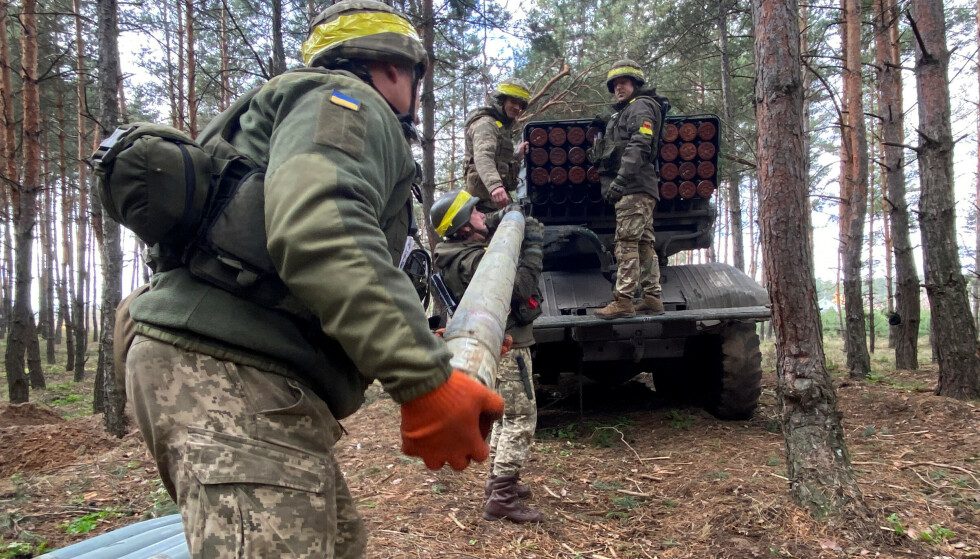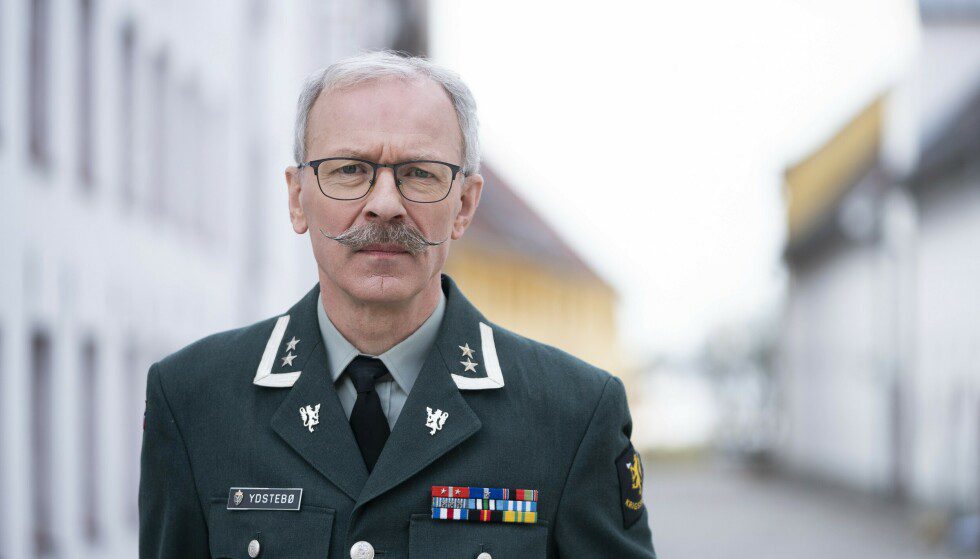While Russian soldiers have their hands full to reinforce their defense lines, Ukraine’s defense minister warns of an imminent major Russian offensive.
– Perhaps they will try to start the next wave of attacks in February, like last year. This is their plan, Oleksiy Reznikov adds Watchman.
He justifies this by saying that the last half of the 300,000 soldiers Russia musters in the fall will be well enough trained to be deployed.
And other high-ranking military leaders believe that a major Russian offensive could come as early as January.
– Who is the most dangerous
– At best, in March, and at worst, the end of January, – says the chief of defense, General Valery Zaluzhny, The Economist.
– There is another possibility, says Pal Yedistebo, lieutenant colonel at the Military College.

Old War Strategies: According to the British Ministry of Defense, Russia uses war strategies that have not changed since World War II. Here from the Battle of Stalingrad in 1942. Photo: NTB Scanpix
Show more
– This is something they can fear. For Ukraine, this is one of the most dangerous things that could happen, he says.
However, he still didn’t think a Russian attack could come so quickly.
– I don’t think Russia will be able to build up good enough forces in such a short time, he tells Dagbladet.
– It won’t work
Unlike many others, Ukrainian Defense Minister Valery Zalogny believes that the mobilization of 300,000 Russian soldiers has “successful”.
Defense Minister Reznikov calls the Russians’ tactics a “meat grinder”: throwing as many soldiers as possible, in order to win through numerical superiority.

‘Meat-grinder’ strategy: Ukraine’s Defense Minister Oleksey Reznikov describes Russia’s offensive tactics as a ‘meat-grinder’: throwing in as many soldiers as possible to win in numbers. Photo: NTB Scanpix/Johan Nilsson
Show more
But Ydstebø does not believe that such tactics, used by the Soviet Union during World War II, will work now.
– They no longer have numerical superiority, he says, and states that the Russian forces have suffered heavy losses and have enough to defend themselves.
If they tried to attack now, he didn’t think they would succeed.
– The odds of success wouldn’t be particularly great, against healthy, well-trained, well-equipped Ukrainian soldiers.

– Then the Russians will collapse
Winter will take advantage
Of the 300,000 mobilized this fall, Ydstebø estimates a quarter have been sent to Ukraine, while half are undergoing training. The final quarterback is a reserve who will also need to train.
Therefore, he does not believe that a major Russian offensive will come before April or May.
Meanwhile, Ydstebø believed that the Ukrainians could continue the reconquest, if they could build up mobile heavy groups that could strike at the front.
He says Ukraine is better prepared for the Winter War than Russia, with better equipment, training and motivation.

– The process of recovery continues: Lieutenant Colonel Pali Edstepo believes that Ukraine will take advantage of the winter to continue the recovery of the Russian-occupied areas in the far east of Ukraine. The photo shows Ukrainian soldiers at the front on the border between Kharkiv and Luhansk regions last month. Photo: NTP Scanpix/Reuters/Vitaly Heneidy
Show more
According to Ydstebø, Luhansk in the northeast and Zaporizhzhya in the northeast of Russian-occupied Crimea are highly relevant to the Ukrainian offensives, because they would then be able to cut off Russian supply lines.
– I think Ukraine will try to take advantage of the winter for what it deserves, says Palle Ydstebø.
It hasn’t changed since World War I
Military experts now point to parallels with World War II.
In Friday Books Update British Ministry of Defence The Russians use an old recipe when they dig their trenches.
The UK Ministry of Defense wrote: “Russian construction follows traditional military plans to anchor itself, which have been largely unchanged since World War II.”

He is not superior anymore: – The Russians no longer have a numerical superiority, says Lieutenant Colonel Pal Yedistipo. Photo: Terje Pedersen/NTB
Show more
According to the British, such constructions make the Russians vulnerable to modern precision attacks.
They see the construction of large defensive lines as a new example of the Russians returning to a kind of warfare that “most Western military forces have abandoned in recent decades.”

New Attacks: – Serious Infrastructure Injury

